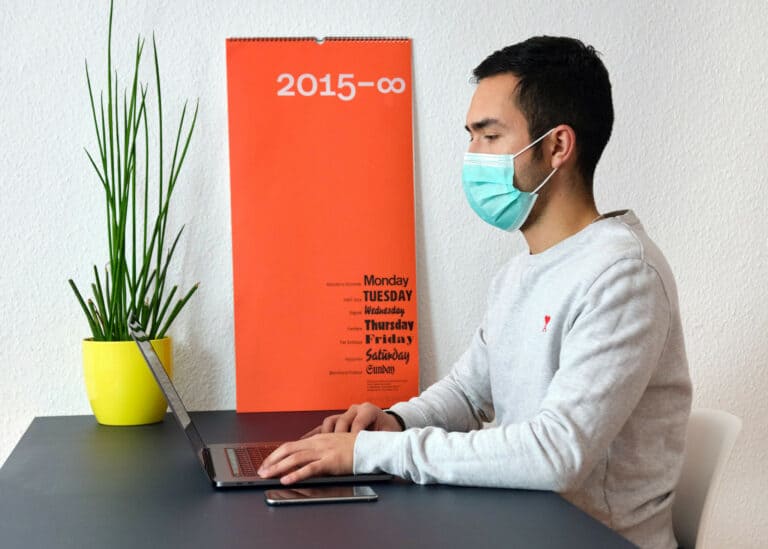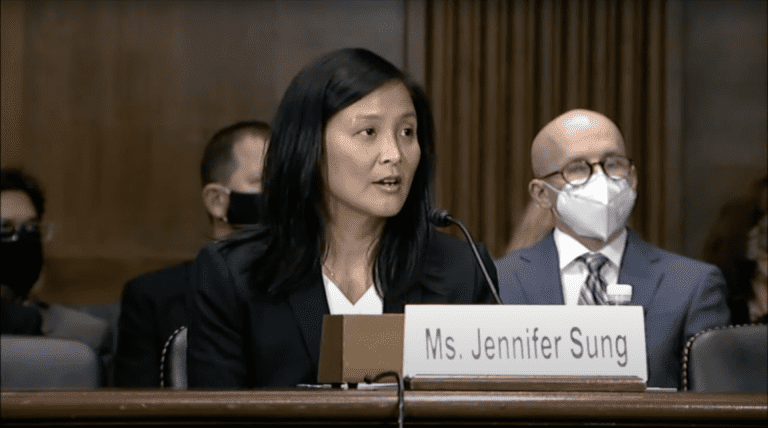Jason Salgado is a student at Harvard Law School and a member of the Labor and Employment Lab.
So-called “gig-economy” workers are on the frontlines of the Covid-19 pandemic. Instacart and Shipt workers have handled a massive increase in demand for grocery deliveries. DoorDash and Postmates couriers have delivered countless take-out orders as restaurants close in-person services. Uber and Lyft drivers have transported passengers with Covid-19 symptoms to receive care. Yet, even as the service these workers perform is deemed so essential that they are exempted from general stay-at-home orders, they are being denied basic workplace protections. That is because gig-companies escape liability under minimum wage, overtime, paid leave, workers’ compensation, and unemployment insurance laws by misclassifying their workers as “independent contractors,” rather than employees.
The results have been catastrophic. Uber and Lyft drivers at heightened risk of illness because their work involves close contact with the public have been arbitrarily denied the help promised by the companies, even after showing symptoms of or testing positive for Covid-19. Lawsuits in California and Massachusetts seeking emergency injunctions to provide drivers the paid sick time to which they are entitled under those states’ laws—which, unlike the companies’ illusory promises of assistance, do not require a Covid-19 diagnosis or self-quarantine order—have been delayed by ongoing litigation over the companies’ forced arbitration clauses. Instacart and Shipt workers have had to organize strikes and walkouts—at considerable risk to their livelihoods—to pressure the companies to provide them personal protective equipment.
To be clear, the situation these workers face today is not merely the result of the pandemic’s severity. It is the direct consequence of gig-companies “disregarding the rule of law” for years by refusing to classify their workers as employees, depriving them of workplace protections to which they are legally entitled. In California, it has been obvious since the state’s supreme court issued its Dynamex decision in 2018 that gig-workers are employees entitled to benefits including paid sick time and unemployment insurance. After California codified Dynamex by passing AB-5, the companies announced they still would not comply with the law. Instead, they are dedicating at least $110 million to a ballot initiative to repeal it. Earlier this year, they also made minor tweaks to their apps in California which they assert demonstrate the “flexibility” they provide their drivers, but which in fact do nothing to change their workers’ employment status.
Meanwhile, in New York and other states, gig-companies including Uber and Postmates have already been deemed “employers” covered by state unemployment insurance (UI) laws. The companies have also decided these laws shouldn’t apply to them, refusing to pay the tax contributions they owe for these programs and declining to provide driver wage information to state unemployment agencies. Because UI eligibility and benefit amounts are determined in part by an employee’s past wages, these workers have been left without access to this essential benefit for nearly a month, even as their earnings have been decimated by plummeting demand for ridesharing services. As a result, by the week before New York issued its stay-at-home order, half of the 200,000 rideshare drivers affiliated with the Independent Drivers Guild in New York, New Jersey, and Connecticut reported seeking food assistance through SNAP and other emergency-relief programs.
The CARES Act established a federal “Pandemic Unemployment Assistance” program (PUA) which is supposed to extend UI benefits to workers not ordinarily eligible under state UI laws. While better than the status quo, it’s not enough. Even though the CARES Act was passed on March 27, the PUA program is yet to be implemented, and it may take several more weeks to issue payments. At a time when most American households cannot withstand a single missed paycheck, many gig-workers have been left with almost no income for nearly a month. The PUA program is also a temporary measure set to expire on December 31 of this year, after which these workers will once again be left without UI benefits. Worse still, the Department of Labor issued guidance which would significantly restrict these workers’ access to PUA benefits by deeming them eligible only “if they have been forced to suspend operations as a direct result of the Covid-19 public health emergency,” such as if an “emergency state or municipal order . . . makes continued operations unsustainable.” That standard would exclude workers facing substantially reduced earnings due to decreased demand even though—if they were properly classified as employees—they would likely qualify for at least partial state UI in those circumstances.
To the extent the availability of this federally-funded PUA benefit disincentivizes already overwhelmed state agencies from enforcing their own UI laws against gig-companies, it will also represent a massive taxpayer subsidy to these multi-billion dollar companies. Little wonder, then, that Uber’s CEO publicly supported extending coverage to his employees. Making clear that gig-companies’ real concern is their bottom line, rather than their workers’ well-being, he also directly lobbied President Trump and congressional leaders to shield the companies from employment-law liability beyond the current crisis. According to Uber’s CEO, lawmakers must create a third employment-status category for their drivers so they can “legally provide [drivers] with a real safety net going forward,” by removing a “forced choice between flexibility and protection.” In reality, there is no legal barrier to providing this same level of “flexibility” and extending the full range of employment benefits to these workers.
Solutions
In light of the insufficient federal response and gig-companies’ ongoing attempts to evade liability, states must act immediately to protect vulnerable gig-workers. Rather than defer to the limited availability of federal PUA benefits, state unemployment agencies should deem misclassified gig-workers presumptively eligible for state unemployment benefits. To establish monetary eligibility and determine benefit amounts, states can use worker-provided earnings data in the absence of the wage information the companies are legally required to provide. As Professor Veena Dubal and others explain, these workers are already almost certainly eligible for UI under all employment-status tests used by state UI laws. Establishing eligibility under state UI laws would ensure that misclassified workers continue to have access to UI benefits after the PUA expires, while allowing states to recoup billions in missing tax revenue that can be used in part to improve dated and inaccessible UI systems crumbling under unprecedented demand.
States should also enact or expand their existing paid leave and sick time laws to provide coverage for all workers and supplement the narrowly construed, underinclusive federal benefits provided by the Families First law. While “self-employed” workers are theoretically covered under the Families First paid sick time and leave provisions, they can only access the program through an overly-complex tax-credit scheme which will delay desperately-needed benefits. State sick-time laws would enable immediate relief, appropriately place the burden on employers to comply with the laws they evade through misclassification, and provide legal protection against termination for workers who need time off, rather than just rely on expanded UI benefits. Finally, states should guarantee gig-workers the right to unionize, increasing their bargaining power and providing legal protection for the collective actions they are taking to secure safe working conditions and increased pay.










Daily News & Commentary
Start your day with our roundup of the latest labor developments. See all
February 15
The Office of Personnel Management directs federal agencies to terminate their collective bargaining agreements, and Indian farmworkers engage in a one-day strike to protest a trade deal with the United States.
February 13
Sex workers in Nevada fight to become the nation’s first to unionize; industry groups push NLRB to establish a more business-friendly test for independent contractor status; and UFCW launches an anti-AI price setting in grocery store campaign.
February 12
Teamsters sue UPS over buyout program; flight attendants and pilots call for leadership change at American Airlines; and Argentina considers major labor reforms despite forceful opposition.
February 11
Hollywood begins negotiations for a new labor agreement with writers and actors; the EEOC launches an investigation into Nike’s DEI programs and potential discrimination against white workers; and Mayor Mamdani circulates a memo regarding the city’s Economic Development Corporation.
February 10
San Francisco teachers walk out; NLRB reverses course on SpaceX; NYC nurses secure tentative agreements.
February 9
FTC argues DEI is anticompetitive collusion, Supreme Court may decide scope of exception to forced arbitration, NJ pauses ABC test rule.